Project for Upcoming artists for the Large Stage.
Four young directors ask, investigate and play the grand hall.
Follow their projects, their work process and their dialogue.
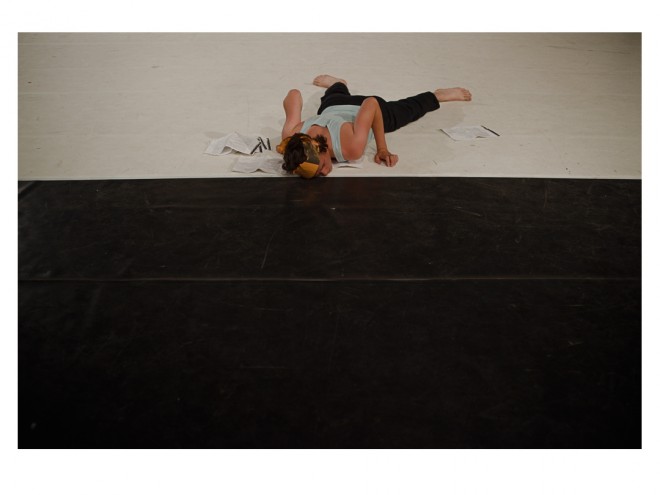
Ferre Marnef during rehearsal of Het Huwelijk
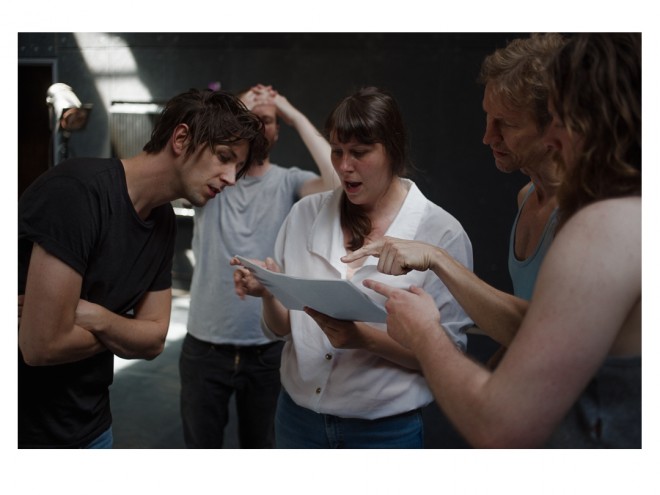
Timeau De Keyser and Tibaldus rehearsing Het Huwelijk
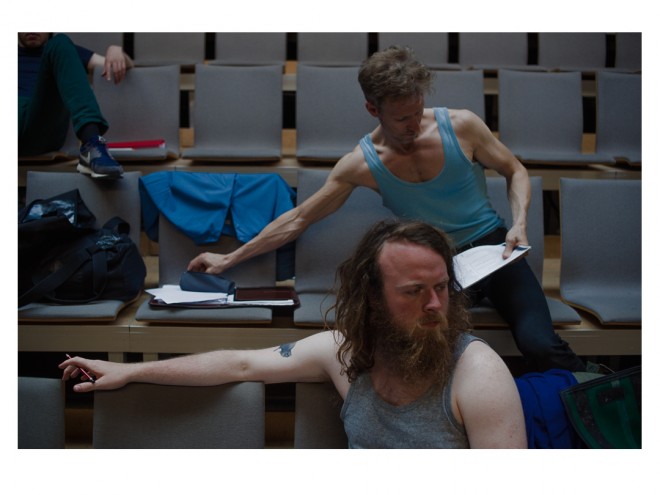
Simon De Winne and Hendrik Van Doorn during the rehearsal of Het Huwelijk
Hannah De Meyer's Levitations won at BE Festival the 'New Cambridge Junction Prize'.
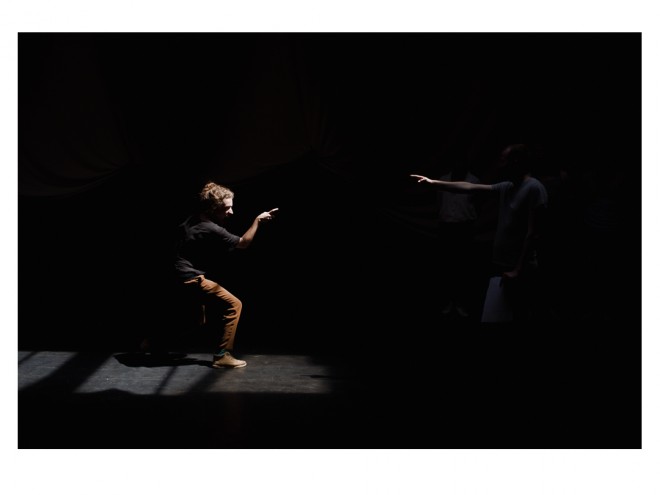
Tibaldus is premièring Het Huwelijk (The Marriage) after a play by the Polish writer Witold Gombrowicz at the 2018 Love at first Sight festival.
Gombrowicz was born in 1904 and moved to Warsaw to study law. When World War Two broke out he was on an assignment as a reporter in Argentina. He decided to go into voluntary exile there and he stayed until 1963. By that time he had already written several of his later award-winning works, including the play Yvonne, Princess of Burgundy (1935) and the novel Ferdydurke (1937). In 1953 he started writing his diary.
Driven by a critical view of Poland, he set out his theories at length, including his theories about Form. By Form he meant first and foremost convention. Throughout his life he struggled with the idea that a fixed Form determines the human condition. People express themselves to the outside world as they think they should appear, according to a Form imposed by others, by culture and society. To free himself of this, man must strive for a sort of formlessness, a state of continuous evolution. He saw Communism as a tyrannical expression of that Form theory because of the ideology it imposes on its adherents to subject themselves fully to the authority of others.
Gombrowicz wrote the passage ‘Thursday’ in 1954 while working for a Polish bank in Buenos Aires but still living in great poverty. Distribution of the diary was banned in Poland until after his death. It was not published until the 1980s and then only in a censored version.
Read more
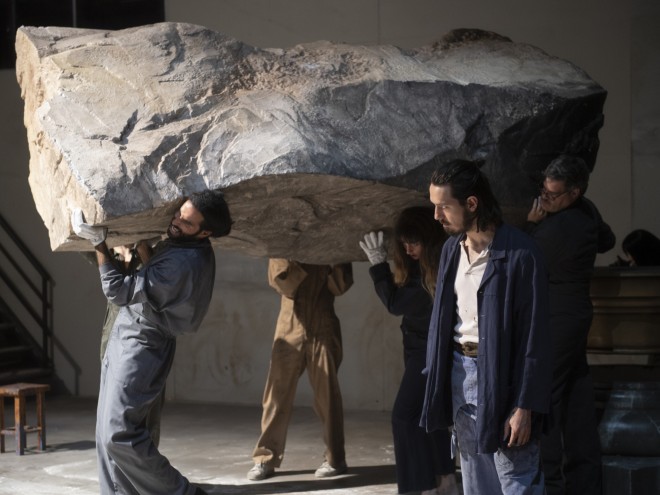
Premiere of Falsestuff, a show by Nao Albet and Marcel Borras. Lisaboa Houbrechts collaborated on the direction and dramaturgy.
Read more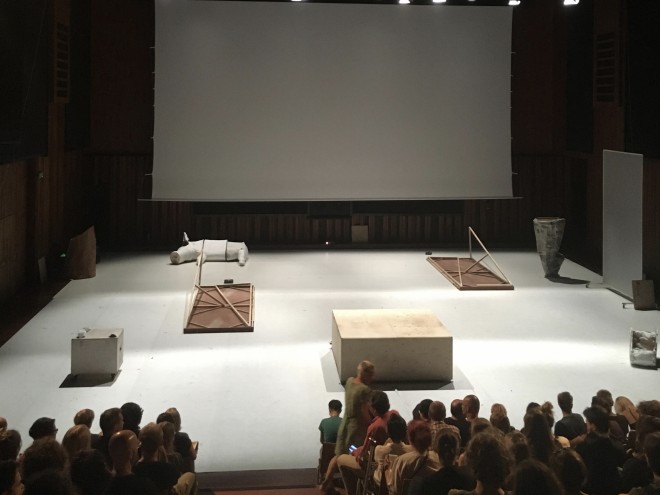
Last Tuesday Kuiperskaai presented 1095 to a full house at Maltafestival in Poznań
In the light of the lecture at Slogi (Slovenian institute for theatre) in Ljubljana Bart Meuleman wrote an essay that gives an insight in the realisation and structure of P.U.L.S.. You can read the text entirely here.
Read more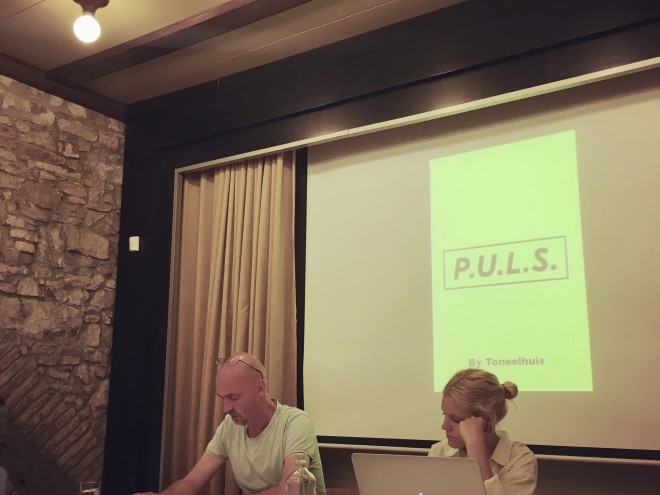
Bart Meuleman and Dina Dooreman were invited by Glej theatre to hold a lecture about P.U.L.S. in Slogi (Slovenian institute for theatre) in Ljubljana.
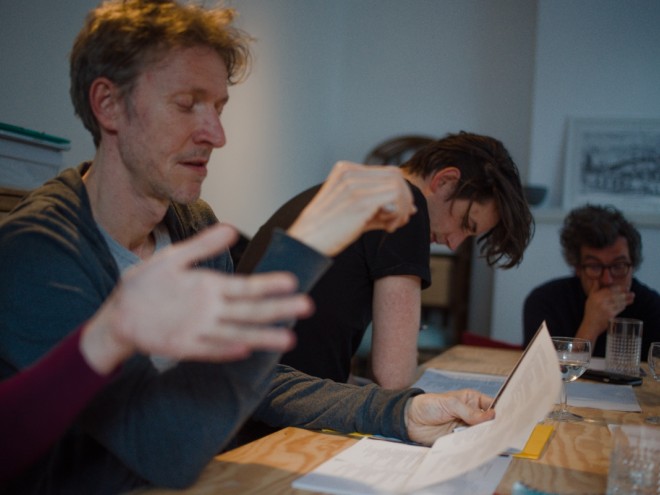
Tibaldus during the first reading of Het Huwelijk (The Marriage), a text by Witold Gombrowicz